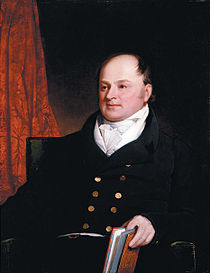For those of you who asked:
All measurements are approximate - add as much bacon (chopped/cooked yourself and/or packages of bacon bits, as long as they're the real kind), onion, or veggies as you like, and if you like them or have them around, you could add finely chopped mushrooms andor leeks and/or red, orange or yellow sweet peppers (I think the flavor of green peppers would be too strong). I haven't made this with chopped spinach but I'm sure it'd be good - just made sure it's chopped fine and , if frozen, drained dry.
The amounts/types of cheese I mention below are my personal preference, after quite a bit of experimentation. I prefer quiche to taste like Swiss cheese; the provolone gives you a somewhat more complex flavor, and the Parmesan adds some nuttiness. You don't need fancy parm for this - I use the Safeway brand of mixed Parm/Romano, but use whatever cheese you like or have around.
The only quantities that are set in stone are the 8 large eggs and 2 cups of half and half. That amount of liquid, on top of the other ingredients, makes exactly enough to fill 2 deep dish frozen pie crusts to the brim. If you want to use smaller crusts, you may be able to make 3 quiches.
Preheat oven to 400 degrees.
For 2 frozen deep-dish pie crusts:
1/2 pound bacon, chopped
1 medium onion, chopped fine
1/2 lb asparagus or broccoli (small cut so they cook through while the quiche bakes)
~8 oz shredded Swiss-style cheese (Swiss and/or Jarlsberg and/or Emmentaler and/er Gruyere)
~4 oz shredded Provolone
~2 ounces grated Parmesan/Romano mixture cheese
8 large eggs
2 cups half-and-half
Fresh nutmeg
Salt and pepper
Directions
Cook the chopped bacon until crisp, and drain on paper towels.
In a large bowl, mix both kinds of bacon, onions, veggies, and all of the cheeses. Stir it around to combine well and place half of this mixture in each pie crust, spreading it around evenly.
Pour the eggs and half-and-half into the now-empty bowl, and fresh-ground pepper to taste (I don't add salt, because with the cheese and bacon I find it salty enough, and you can always salt it at the table), grate some nutmeg over it (maybe 1 teaspoon if you're using the jarred stuff), and whisk thoroughly. Carefully pour the egg mixture over the cheese mixture that's sitting in the crusts, a little at a time so it gets down into the cheese - if you pour too quickly it will just spill over the top. I'll all fit - just go slowly.
Bake in the 400 degree oven for 15 minutes, then reduce the heat to 350 degrees and bake for an additional 35 - 45 minutes (check after 30 minutes, then keep adding another 5 minutes at a time) until done, It'll be pretty brown, not lightly browned, by the time the eggs are set - they should no longer be jiggly in the middle.
Cool on a rack for 30 minutes before cutting.
This keeps in the fridge for several days, and freezes really well. When you want to reheat, microwave for 1 minute (1.5 if frozen) then place in a dry skillet oven medium heat for a few minutes - otherwise the crust will be somewhat soggy (but edible).



